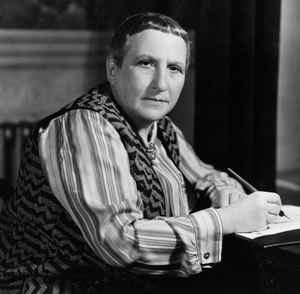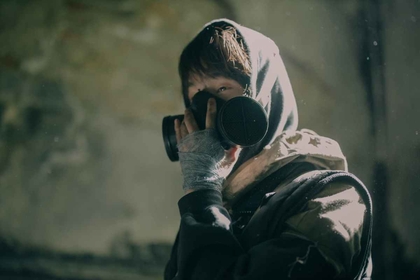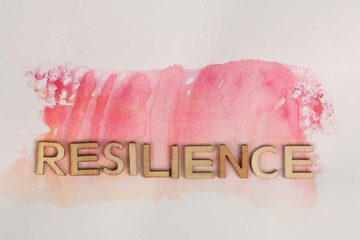The online health & safety courses the University required him to take or retake each year were multiplying as fast as the rabbits on campus.
There was the online course that told you how to arrange the pencils on your desk in relation to your monitor in relation to the course of the sun. There was the online course on which fire extinguisher to use on which kind of fire. (Even on immediately finishing, he could never remember.) There was the course telling you not to spend too much time online. It was online, of course; it took a good hour; longer if you succumbed, as he did, dizzy with courses, to longeur.
Now the courses on online behaviour were themselves multiplying. There was a course on data protection. (Delete everything but absolutely don’t delete anything if you’ve done something wrong; totally counterintuitive, he thought.)
And there was the course dedicated to ‘good password management’.
Last year the University had introduced ‘dual authentication’. This was during the pandemic, so he wondered if it was the equivalent of a vaccine for computer viruses. Dual authentication meant being asked to do two totally contradictory things at once. It meant that whenever he wanted to log on, he had to fly down three flights of stairs, rummage through several half-unpacked bags and find his smartphone in order to tap an app with the smiley face that said, ‘Yes, it really is me.’ All of this had to happen before his computer gave up on him and he gave up on his computer, forgetting whatever it was that he needed to log on to do in the first place. Each time, he was in a race against the effects of ageing.
On top of dual authentication, the course on password management imposed an additional layer of security. He – and the surprisingly large number of people whose passwords he knew by heart – would have dismally failed the test questions at the end of the course.
Everyone he knew wrote their passwords on post-it notes and stuck these somewhere accessible (normally their computers). (Question 1. ‘What’s the worst thing you could do to compromise your own security/the future of the planet?’)
‘Availability; confidentiality; data quality; secrecy; integrity.’ (Question 2. WTF is information security anyway?) To him, the answers sounded like an ideal relationship, only without the sex.
Question 3. ‘You use unlicensed stock photography in your lecture. Do you:
a) Acknowledge that it’s unlicensed and apologise.
b) Whoop out loud in your lecture when you show the photograph.
c) Say nothing. You know NOTHIN’.
d) Wear dark glasses and a sleuth hat to your lecture, like Inspector Gadget.
e) You’re far too smart ever to use unlicensed anything.
f) Wonder WTF is unlicensed stock photography.
The biggest potential pratfall came in relation to animals again. Everyone he knew used their pet’s name in their password. As did he, albeit jiggled up with exclamation marks and asterisks added each time he was locked out, could no longer remember his password, and was told that he needed to create a new one. As the passwords became ever longer, they became ever more unmemorable. His passwords were becoming protected even against him.
He reached the final question. (And on this question, honestly Inspector Gadget, the SP has changed NOTHIN’):
‘On a night out, Kofi is approached by someone in a bar, who introduces himself as Stefan. Stefan explains that they met once at work a couple of months ago. Kofi isn’t sure if he remembers Stefan.
The conversation continues, and they get on well. They talk about where they went to school. Stefan then asks Kofi about childhood pets: “We were a big dog household. Our first was called Shandy. How about yours?”
What should Kofi’s answer be?
a) “I had a few pets myself. It’s been so long, I can’t remember I’m afraid.”
b) “Mine was a rabbit called Holly. That was back when I lived on Watts Road.”
c) “I think her name was Holly. She was great but grew up to be massive!”
d) “Did your dog eat rabbits, by any chance?”
Ok, this last response was not actually on the test. But the scenario seemed to him so bizarre, as imaginative and sinister as the opening to any Poe short story, it was impossible not to develop and speculate from it.
Was Stefan really Stefan, or was he someone else in disguise? Did he come from a household that liked big dogs, or did his household keep dogs of any size? And what was with the size thing, anyway, big rabbits versus big dogs? Were these guys sizing each other up and the animals were euphemisms, or were the rabbits and dogs code names for something more menacing — Russian nerve agents, perhaps?
Above all, the premise that, on your night out in a bar, someone could come phishing for your University password by having a friendly chat about where you used to live or past pets seemed to him excessive and unrealistic. Excessive and unrealistic, that is, until his partner Ariadne reminded him about a phishing scam that had gone round on social media a few years back.
The scam involved an app that enticed you to enter the name of your first pet and the first street on which you lived. In return, it combined the words and rewarded you with your ‘porn-star name’.
Dickie Wiener. He had totally fallen for it.
But if he ever got locked out of the University systems permanently, at least he had a name and the idea for an alternative career















